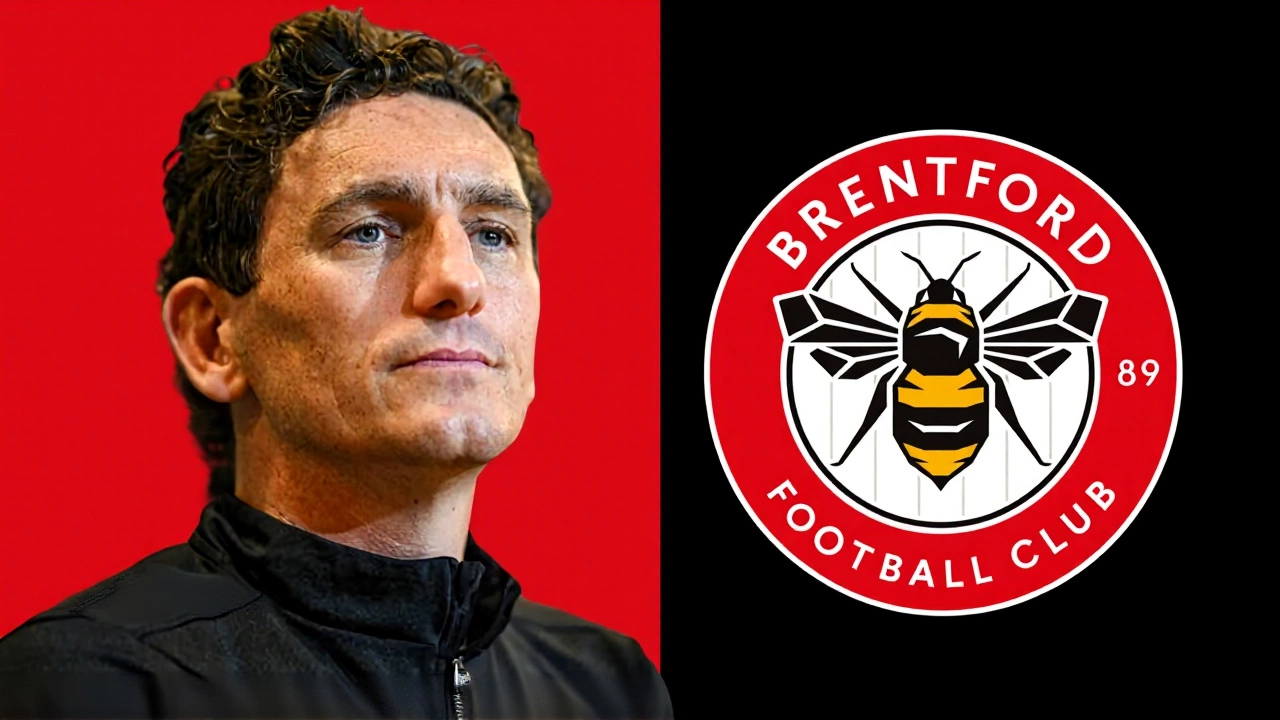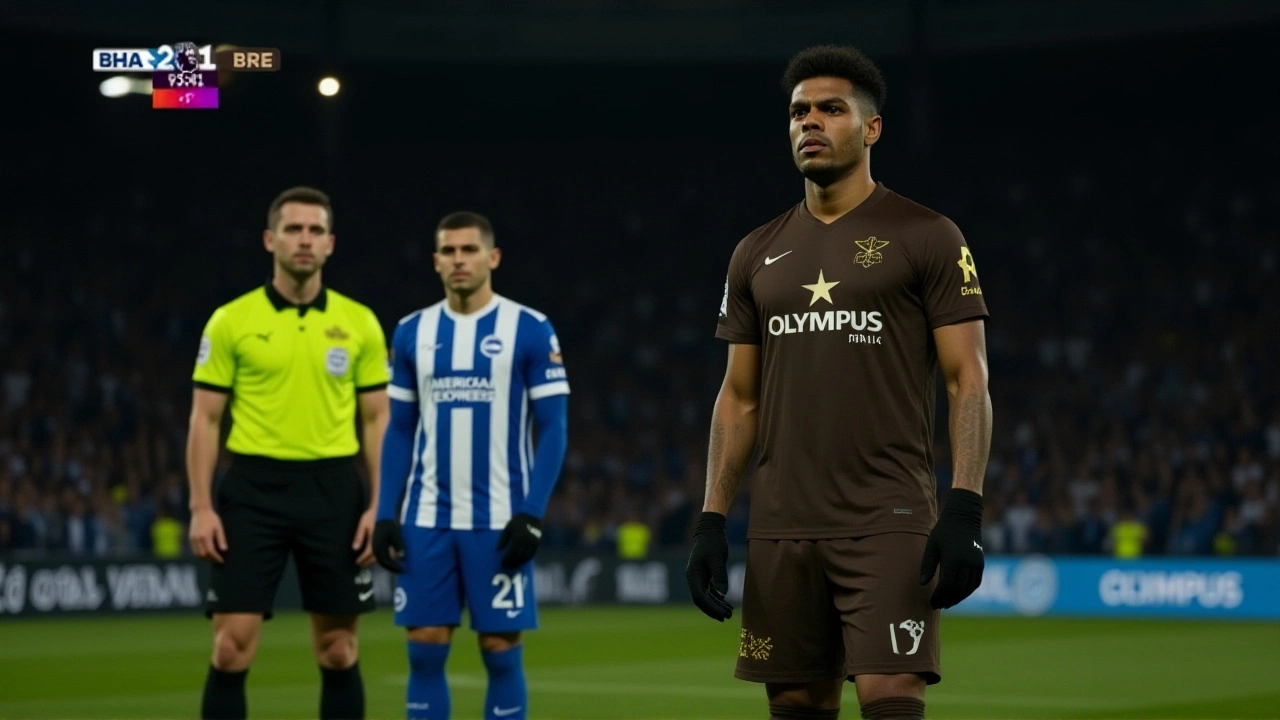Brentford's Fábio Carvalho Suffers Season-Ending ACL Injury Ahead of Brighton Clash
 Nov, 23 2025
Nov, 23 2025
When Keith Andrews walked into the press room at the Brentford Community Stadium on a damp Tuesday in mid-November 2025, the usual pre-match chatter about tactics and transitions was overshadowed by something far more sobering. The Brentford Football Club manager didn’t need a PowerPoint to make his point — just a quiet, exhausted sigh and two simple sentences: "It happened around a week ago in training. It’s been a tough week for obvious reasons." Those words confirmed what fans had feared: Fábio da Silva Carvalho, the 22-year-old Portuguese midfield dynamo, had torn his ACL — a season-ending blow that rips a vital thread from Brentford’s 2025/2026 campaign.
The Injury That Changed Everything
The injury occurred during a routine defensive drill at Brentford’s training ground in west London, just before the team’s November 16 press conference. No dramatic collision. No tackle gone wrong. Just a plant-and-twist — the kind of movement thousands of amateur players make every weekend without consequence. For Carvalho, it was catastrophic. He collapsed without contact, clutching his right knee. The medical team rushed him off the pitch. An MRI the next day confirmed the worst: a complete rupture of the anterior cruciate ligament. Surgery followed within 48 hours. Recovery? Eight to ten months. That means he’ll miss not just the remainder of the Premier League season, but also the FA Cup and EFL Cup runs.
Carvalho wasn’t just a squad player. He was, at the time of injury, Brentford’s third-most active midfielder in minutes played — 642 across 12 Premier League appearances (eight starts). He’d chipped in one goal and two assists, often drifting into half-spaces to link play between the lines. His market value, still at £18.5 million according to Transfermarkt, reflected his potential. And now, that potential is on hold. "It’s a significant setback," Andrews admitted, his voice low but steady. "We’ve lost someone who was growing into a key piece of this puzzle."
Andrews’ Stone-Cold Confidence
But here’s the twist: Andrews didn’t dwell. Not for long. After the injury update, he pivoted — hard. "I’m pretty comfortable where we are!" he declared, leaning forward in his chair, eyes locked on the cameras. The YouTube clip of that moment, uploaded by a fan shortly after the conference, has since gone viral. Over 2.3 million views. Comments range from "He’s got ice in his veins" to "Is he in denial?"
The truth? He’s not in denial. He’s in control. Brentford sit 12th in the Premier League table with 18 points from 13 games. Not glamorous. Not safe. But not in trouble either. With six wins, six draws, and one loss, they’ve become the league’s most frustratingly resilient side — the team that draws 1-1 at Anfield, then beats Liverpool’s rivals 2-0 at home. Andrews inherited this squad last June after Thomas Frank’s departure to manage Denmark. And now, he’s showing he can lead through adversity.
His confidence isn’t blind. It’s built on structure. Brentford’s midfield depth — though now thinner — still includes the likes of Josh Dasilva, who’s been quietly brilliant in Carvalho’s absence, and young academy product Tariq Lamptey, who’s been shifted into a hybrid role. "We’ve got guys who know the system," Andrews said. "It’s not about one name. It’s about the group."
The Ripple Effect
The loss of Carvalho hits beyond the pitch. Financially, his injury could trigger insurance payouts — a lifeline for a club that’s been cautious with its wage bill since their 2021 Premier League promotion. But more importantly, it forces a tactical recalibration. Carvalho’s ability to carry the ball through pressure and find pockets in tight spaces was unique. Who replaces that? Will Andrews go for a more direct approach? Will he push the fullbacks higher to create width? The upcoming match against Brighton and Hove Albion Football Club — seventh in the table with 24 points — will be the first real test.
Brighton, under Roberto De Zerbi’s successor, have been playing a high-press, possession-heavy game. They’ve scored 22 goals this season. Brentford have conceded just 11. That’s the kind of chess match Andrews thrives in. But without Carvalho’s creativity, it’s harder to break down organized defenses.
And then there’s the emotional toll. Carvalho was a quiet leader in the dressing room. Portuguese, but deeply integrated. His teammates posted tributes on social media. The club’s official channel released a video of him smiling in the rehab gym — no captions, just music. It was heartbreaking. And real.

What’s Next?
The Premier League match against Brighton is scheduled for Saturday, November 22, 2025 — no postponement expected. Andrews confirmed no new signings are imminent before the January window. "We’ll wait," he said. "We’ve got players who can step up. We’ve got time."
But time is the one thing Carvalho doesn’t have. His rehab begins now. The first milestone? Walking without crutches by January. The next? Light jogging by March. Full clearance? May 2026 — just in time for pre-season.
For Brentford, the challenge isn’t just filling a roster spot. It’s reshaping identity. Can they win without the flair? Can they grind out results with grit? Andrews is betting yes. And for now, that’s enough.
Frequently Asked Questions
How long will Fábio Carvalho be out, and what’s the typical recovery timeline for an ACL tear?
Fábio Carvalho is expected to miss 8–10 months following reconstructive ACL surgery, meaning his return won’t come until May 2026 — just in time for pre-season. Most elite athletes require at least six months before light training, with full competitive clearance typically taking eight months or longer. Recovery involves progressive strength work, neuromuscular retraining, and psychological readiness — not just physical healing.
What impact does Carvalho’s injury have on Brentford’s Premier League survival chances?
Brentford are currently 12th with 18 points — comfortably clear of the relegation zone by five points. While Carvalho’s creativity was valuable, the team’s identity under Andrews is built on structure and defensive solidity. With six wins and six draws already, they’ve proven they can win without relying on individual brilliance. The bigger risk is fatigue in the second half of the season, especially with limited squad depth in central midfield.
Why didn’t Brentford sign a replacement before the injury?
Brentford’s transfer policy prioritizes long-term value over panic buys. Carvalho was signed in July 2023 for £12 million, and the club believed his development curve would continue into 2025. With no major injuries in the midfield group prior to November, there was no perceived need to spend. The club’s financial model relies on smart, sustainable investment — not reactive spending, even in crisis.
How does Keith Andrews’ leadership style differ from Thomas Frank’s?
Thomas Frank was known for his calm, philosophical approach and intricate tactical setups. Andrews, a former Ireland international, brings a more direct, results-oriented demeanor. He’s quicker to praise resilience over technique, and he’s unafraid to say "I’m comfortable where we are" — a phrase Frank would never utter. Andrews values grit, discipline, and adaptability over flair, which may explain why Brentford’s style has become more pragmatic under his watch.
Could this injury affect Brentford’s transfer strategy in January?
Absolutely. While Andrews says they’ll wait, insiders suggest the club is already monitoring two midfielders: one from the Belgian Pro League and another from Brazil’s Série A. Both are under 24, have ACL-free medical histories, and are available for under £10 million. A move is likely in January — not because they’re desperate, but because they’re smart. Waiting until summer would leave them dangerously thin in the second half of the season.
What’s the significance of Andrews saying, "I’m pretty comfortable where we are"?
In football, managers rarely say they’re "comfortable" — it sounds like complacency. But Andrews isn’t complacent. He’s confident in the system, the squad’s resilience, and the team’s ability to grind out results. It’s a psychological tool: it signals to players that they’re on the right track, and to rivals that Brentford won’t be rattled. It’s also a subtle message to the board: don’t panic-buy. We’ve got this.